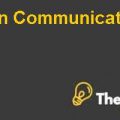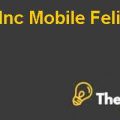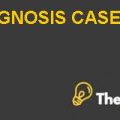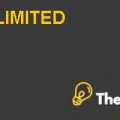
PATAGONIA CASE ANALYSIS Case Solution
Problem Diagnosis
Patagonia Company is the producer of the high quality garments which are environmentally friendly for commanding significant price premiums from the customers. The company has established a strong environmental stance in the industry and has maintained significant growth in its gross profit margin as compared to its competitors. The company was now looking to analyze and assess a new radical environmental initiative called as the Product Lifecycle Initiative. Under this initiative, the company would take the responsibility of the product from birth to death and beyond death to rebirth of its products. Under this initiative, the company would form a mutual agreement with its customers for repairing, reducing, reusing and recycling the company’s products. This case emphasizes on evaluating the strategic fit of this initiative with the current mission and strategy of Patagonia.
Case Analysis
The case analysis has been performed by evaluating, assessing and analyzing a range of different areas. However, first we begin with the strategic audit of the company.
Strategy Audit of Patagonia Company (Question 1)
A full Strategy Audit has been performed for analyzing the strategy and business model of Patagonia along with evaluation of its long term sustainability.
Current Goals
The current goals of Patagonia are being profitable, achieving sustainable growth and minimization of the ecological expenses which forms the basis of its business model. The company emphasizes on increasing the productivity of natural capital by making minimum amount of environmental impact along its entire supply chain.
Value Proposition of Patagonia
Sustainability is the value proposition of the company which lies at the center of the business model of Patagonia. Sustainability at Patagonia acts as the primary source of the basis of company’s differentiation strategy and source of its competitive advantage. In order to differentiate its strategic stance, the company has always produced superior quality products along with the continued involvement of the company in environmental initiatives to reduce its impact on the environment.
Business & Corporate Level Strategy Evaluation
A focused differentiation strategy is used by the company where the company focuses on a narrow segment of the customers who are willing to pay a premium price. Innovation, environmental impact and quality helped the company to charge 20% higher prices as compared to competitors. On a corporate level, the company operates as a single business company and serves only the high end outdoor apparel market. The business is not diversified but diversification is still displayed in the numerous environmental initiatives and product lines of Patagonia.
VRIO Analysis
Valuable: Commitment of 1% for the planet, Product Life Cycle Initiative, Organic Cotton
Rare: Leader for industry shift and Pioneer of organic cotton. The company is leader in the field of sustainability and recycling which also donates revenues to the environmental organizations worldwide.
Imitation Costs: The 20% stake of the company was risked on organics and the costs of organic cotton triple the price of conventional cotton. Company also invests $3 million annually on innovation and $60,000 for recycling initiative costs.
Organized to Capture Value: The goal of company is to raise recycling ratio from 65% to 90% for all products. The company also sold 8% more as compared to competitors with its organic products..........................
This is just a sample partial case solution. Please place the order on the website to order your own originally done case solution.












